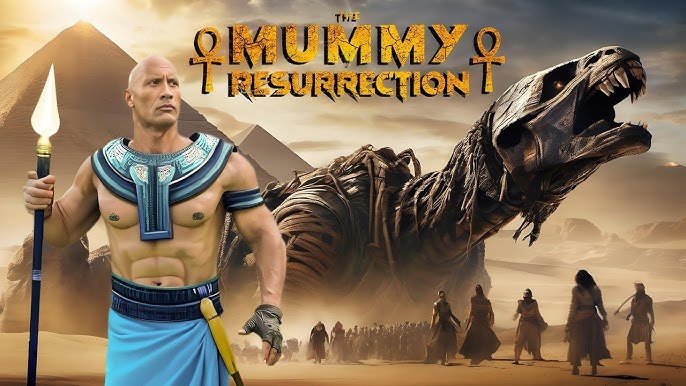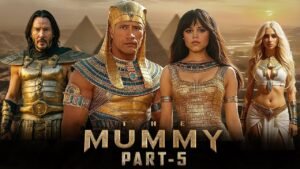The Mummy: Resurrection (2025)
July 14, 2025
The Mummy: Resurrection (2025) breathes new life into the iconic franchise with a bold, visually stunning, and emotionally gripping story that merges ancient mythology with modern stakes. Set two decades after the events of The Mummy: Tomb of the Dragon Emperor, this installment reintroduces audiences to a darker, more mature narrative where forgotten legends are unearthed and vengeance long buried begins to stir beneath the sands. Director Alex Proyas crafts an atmosphere dripping with tension and awe, expertly balancing action-packed spectacle with psychological depth. From the first haunting shot of the cursed Valley of Shadows, it’s clear this isn’t just another resurrection—it’s a reckoning.

The story centers on Evelyn and Rick’s daughter, Alex O’Connell (now played by a commanding Nicholas Hoult), who has become a renowned archaeologist—and a reluctant adventurer. While excavating a forbidden temple near Luxor, Alex unknowingly awakens the soul of Queen Neferka, an ancient sorceress-queen banished by her own people for attempting to merge the realms of the living and the dead. Unlike previous villains, Neferka (portrayed with chilling elegance by Sofia Boutella) is no mindless monster. She is cunning, calculating, and driven by a tragic past that forces viewers to question whether she is truly evil—or simply wronged by history.

One of the most brilliant aspects of Resurrection lies in its reimagining of myth and legacy. Rather than retreading old ground, the film explores how history manipulates memory and how those who control the narrative often bury uncomfortable truths. Neferka’s resurrection is not just physical—it’s symbolic of forgotten power reclaiming its place in the present. Through cryptic prophecies, shifting alliances, and devastating betrayals, the movie challenges its characters to confront their pasts and reckon with the consequences of colonial excavation and spiritual desecration.

Visually, the film is nothing short of breathtaking. The special effects are used with restraint, enhancing rather than overwhelming the narrative. From eerily silent catacombs lit by golden scarabs to massive sandstorms that twist into spectral figures, each scene is a masterclass in atmosphere and tone. The score by Ramin Djawadi elevates every moment, merging ancient Egyptian melodies with thunderous modern orchestration, making the tension not just seen—but felt. One standout sequence involves a confrontation within a mirror realm where time unravels and reality fractures, pushing both the characters and audience to the edge of comprehension.

The performances ground the spectacle in emotion. Nicholas Hoult brings layers of guilt, courage, and reluctant leadership to Alex, while returning franchise icons like Brendan Fraser and Rachel Weisz make triumphant and emotionally satisfying appearances. However, it is Sofia Boutella who steals the film. Her portrayal of Neferka oscillates between divine wrath and quiet sorrow, creating a villain who is both terrifying and heartbreakingly human. Her monologue on love, betrayal, and eternity in the third act lingers long after the credits roll.

The Mummy: Resurrection is more than a revival—it’s a rebirth. It honors the adventure and charm of the original films while introducing philosophical depth and mythological nuance worthy of the modern era. Bold, intelligent, and unapologetically epic, it leaves viewers not just thrilled but thoughtful. If this is the dawn of a new era for The Mummy universe, then it has risen more powerful than ever—and we are lucky to witness it.

